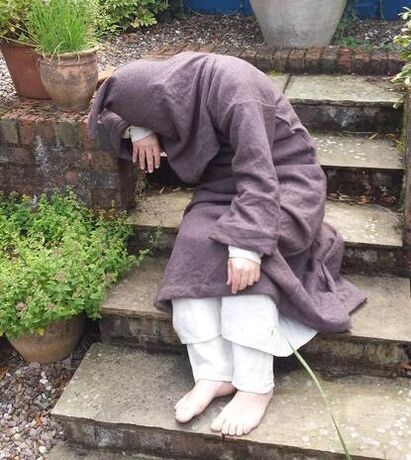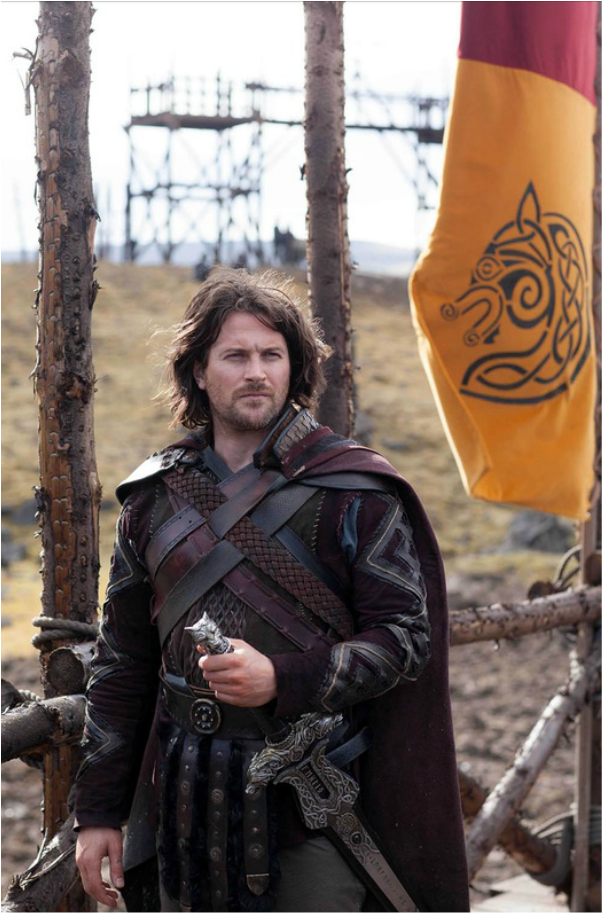|
The Anglo-Saxon Monk is disgruntled over the depiction of thegns in the new British adaptation of the epic Beowulf. Blessed readers,
No one, I assure you, has ever charged me with the iniquitous sin of immoderate fantasizing. (The odd bout of prurient daydreaming during my childhood Latin lessons doesn’t count.) This monastic capacity to withhold oneself from the greater excesses of mental wandering does not mean, however, that I am devoid of imagination. Let me make it abundantly clear, beloved ones, that we Anglo-Saxon monks love a bit of mental playfulness, as any reader of the Anglo-Saxon riddles will attest (though please don’t read the rude ones.) So this brings me to the matter at hand, one of very great concern to many of you as twenty-first-century consumers of ‘medieval fantasy’. In case you haven’t noticed, Beowulf is back! Well, at least in the land of my origins; inhabitants of USA will have to wait until January 23rd. Yes, you can sit down on a Sunday evening (I’m between prayers, so it’s allowed) and avail yourself of Beowulf: Return to the Shieldlands. That’s Beowulf, the greatest piece of early medieval literature – without exception – revisited, retold, and, as the official ITV press release informs us, re-imagined. Now, beloved, that’s allowed. It’s fine, as far as I’m concerned, to take core elements from my favourite epic and create a new story for the scops to sing. Admittedly, in this case, the creative use of those core elements amounts to little more than the redeployment of three names: Beowulf (our beloved superhero), Hrothgar (the aging king) and Heorot (the name of Hrothgar’s hall). But I can cope with that; I don’t necessarily need a narrative which actually resembles that of the original poem in order to be entertained. You may, however, feel deceived by this treatment of our Old English masterpiece, but not me. You may rail against its apparent indifference to the real Beowulf, but, blessed readers, this is the world of medieval fantasy drama; or, as described by ITV in its original press release, this is actually ‘a Western set in the Dark Ages of Britain’s mythic past’. So we were warned – though I have no idea what a Western is. Yet even as I defend the right to completely hijack the name Beowulf for the sake of creative imagination, I still find myself annoyed. Why? Well, we all have our limits, don’t we? And for me, blessed readers, it’s the fact that the wizard-like devisers of this Beowulf don’t seem to know what a thegn is (you may be more familiar with ‘thane’). Now, beloved, I really can suffer, with little unbalancing of my emotional or spiritual equanimity, the copious amounts of anachronism shovelled forth in much medieval fantasy that comes our way, but please, please get the representation of one of the primary figures of early medieval societies right! Please! So what is a thegn? Since Beowulf is an Anglo-Saxon poem, I will primarily deal here with Anglo-Saxon definitions, but I will also dwell a little on the Viking thegn, since the world of Beowulf in the original poem is set in Scandinavia. So, blessed children, here is my list of nine things about thegns that I know you will be dying to know (ten things would be so yesterday, beloved), along with my occasional expressions of disapprobation at how thegns are depicted in Beowulf: Return to the Shieldlands:
19 Comments
|
Details
|


